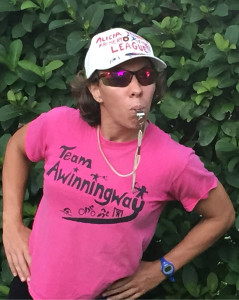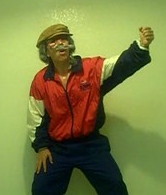By: Alicia Weber
All coaches look for similar characteristics in athletes across all sports in choosing who makes the varsity team. Individual sports like track and field and swimming as well as team sports like basketball and soccer look for specific qualities, but two characteristics that standout the most in the eyes of coaches are work ethics and confidence. You can make a varsity team in elementary, middle, or high school or college and today we will learn how to do so.

The fact is not every athlete who tries out for the team will make the varsity team right away. Only so many athletes can make the first string team, but every player is capable of becoming a star with the right attitude.
Tip 1: Practice regularly and talk to your coach on ways you can improve. Top players advise younger players to play on club teams on their off season to develop competitive instincts.
Once a very self-confident, sophomore from Laney High School, Michael Jordan, failed to make the varsity basketball team. Instead, he ignited a fierce competitive fire and took on the challenge to get better as he became a star on the junior varsity team. The following year, he grew to six feet and three inches. He made the varsity team as he averaged 27 points a game and established himself as a top player and major college prospect. He went on to become one of the greatest basketball players.
Tip 2: Be confident and show your skills and be able to play well under pressure and with an audience.
It is imperative to control anxieties. Varsity athletes need to be ready and attentive at all times and let it be known that you want to be there. Smiling and being overly zealous is a plus as coaches will get to learn of your strong desires to want to play on a varsity team.
Tip 3: Stay focused, listen, and consistently do what you do best.
Coaches look for players with certain abilities and they want those players to stick with those abilities. They want the athletes to focus on their strengths and keep getting them stronger. They want athletes who can follow directions and are willing to become the best they can be. If an athlete can’t follow directions, a coach is not going to want the athlete on a varsity team.
Tip 4: Show the coach you have passion for the sport and that you want to be part of a team.
Coaches look for athletes who can be great team players and leaders. The number one quality a coach loves is a great work ethic. A coach would prefer a dedicated athlete with great work ethics over a naturally talented athlete with no work ethics.
Orlando’s Downy Christian High School has a girls’ varsity basketball team where a 10 year old, Jaden Newman, is the star. She is known to have a tremendous work ethic, which is built from within. She is short and fast. According to Maxpreps, she averaged 30.5 points a game this past season. She gives NBA players a run for their money as she hopes to one day become the first woman to play for the NBA.
Newman is an example of a passionate and very focused athlete.
Different ages and genders can make a varsity team if they prove they can perform. Most coaches want athletes to take risks and try a sport that they may never have competed in before. They believe that as long as you can perform and excel, then you can play varsity.
Erin DiMeglio became the first female to play quarterback on a varsity football team in a Florida high school. She showed up for the tryout confident about her skills and ready to perform with the males. She proved herself and the rest is history.
Tip 5: Be respectful to the coach, teammates, and others, demonstrate good communication, and be presentable in proper attire.
On high-level play, such as division 1 NCAA athletics, it becomes mandatory that a coach becomes in tune with the varsity athletes as the way the coach communicates influences the psychology of the athletic performance. Both the athlete and coach have to make a committed effort to communicate positively and clearly for an athlete’s ultimate success.
END OF REPORT














